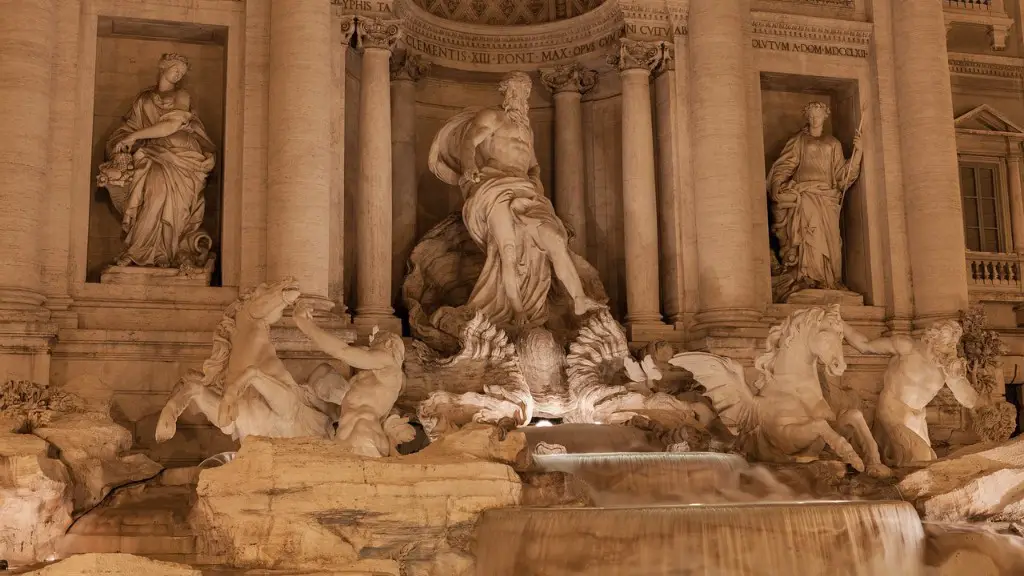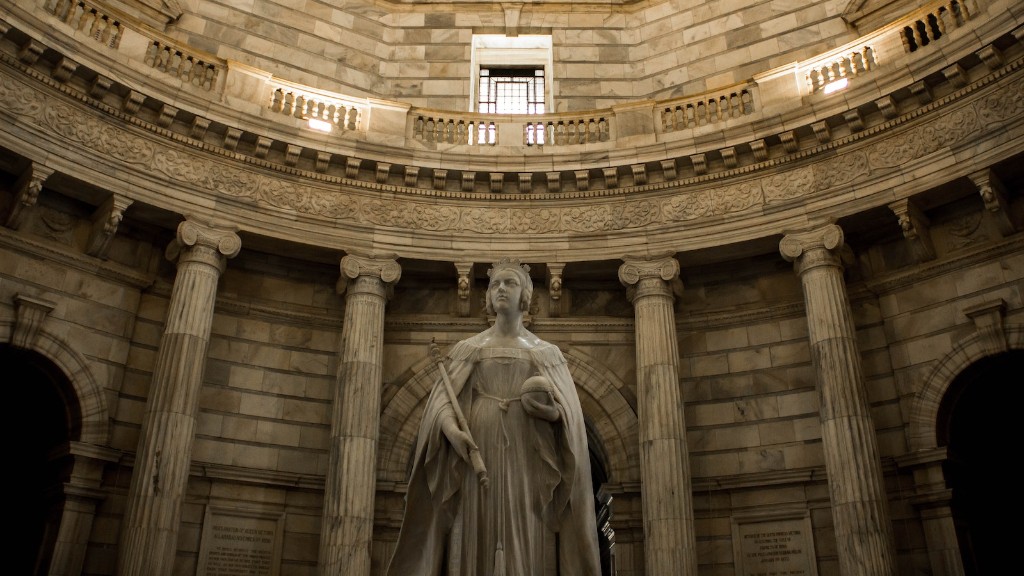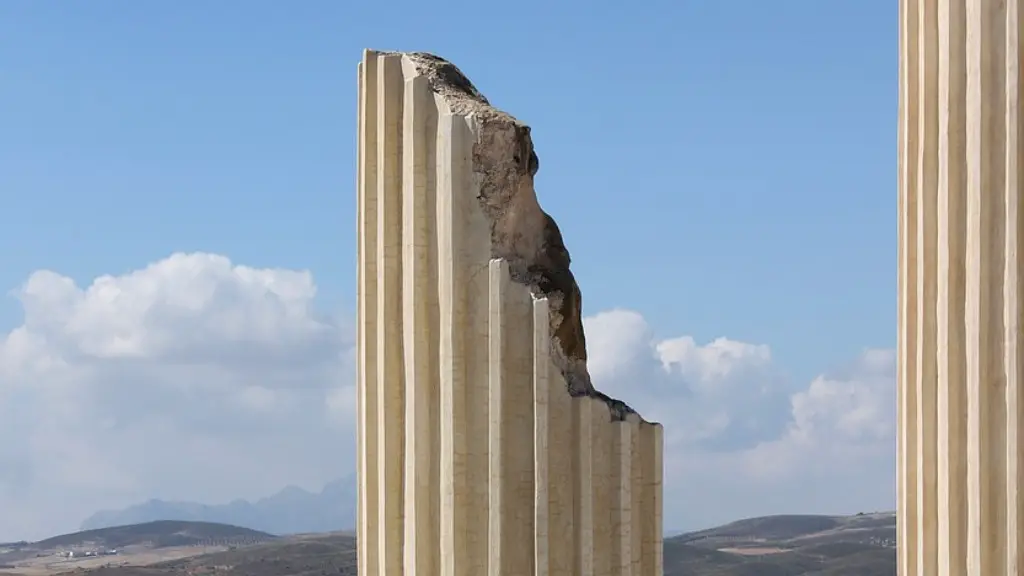The ancient Romans were a conquering civilization that lasted for over 1000 years, sprawling across a vast part of the world. Its influence and legacy can still be felt today, from its language and literature, to its legal and political structures. From its humble beginnings as a small cluster of huts on the Tiber river, early Rome slowly blossomed into a powerful, influential empire that stretched from Britain in the West to the Near East in the East .
The first reliable historical accounts of the ancient Romans come from the Historia Romana by Livius, who wrote in the 1st century BC. According to Livius, the origins of Rome date back to 753 BC, when Romulus and Remus, the twin sons of Mars, the god of war, founded the city of Rome. This is seen as the traditional founding date of Rome, though archaeological evidence suggests that the city may have already been inhabited by Iron Age settlers in the 8th or 9th century BC.
The period of Rome’s history between its traditional founding and the end of the Republic in 27 BC is known as the Roman Republic. During this time, Rome experienced a golden age of literature, art, and architecture, as well as a remarkable series of military conquests that expanded the Roman empire to encompass much of the Mediterranean and Europe. The Republic began to crumble in the 1st century BC, with the rise of powerful individuals such as Sulla and Julius Caesar who attempted to dominate the Republic. Caesar’s assassination in 44 BC marks the death knell of the Republic, and the start of the Roman Empire .
The Roman Empire is generally divided into three distinct periods. The first period, from 27 BC to 284 AD, is known as the Principate, and was marked by a vast expansion of the Roman Empire, though much of it was conducted through indirect rule, rather than direct conquest. The second period, from 284 to 476AD is known as the Dominate and was marked by a series of military and political crisis, including a massive period of civil war known as the Crisis of the Third Century. The final period, from 476 to 1453, is known as the Late Roman Empire, and this was marked by a long period of decline as the Empire gradually shrank and lost its power and influence.
The legacy of the ancient Romans can still be seen today in our own cultural, political, and legal systems. From the Latin language to the development of law and government, to the invention of numerous everyday items, the ancient Romans have left a lasting legacy that continues to influence the world today.
Roman Empire’s Enduring Legacy
The Roman Empire left an enduring legacy on the world that still influences our lives today. The Roman legal system and its many innovations in government and politics has had an indelible impact on the West, from our own legal systems to our methods of civil administration. Additionally, Roman engineers and architects made incredible advancements in technology and infrastructure, while the Roman army and its culture of discipline and order left a deep imprint on Western military traditions. Finally, the Roman Empire’s political and economic stability allowed it to foster a vibrant literary culture, with the works of authors such as Ovid, Virgil, Cicero, and Julius Caesar are still read and studied today.
Roman Contributions to Language, Art and Literature
The Roman Empire also made significant contributions to many fields. Latin, the language of the Roman Empire, still has a profound influence on modern life, from the terminology of the sciences, to the words we use to communicate. Roman sculpture, painting, and other forms of artistic expression had lasting impacts on the West, influencing everything from Renaissance art to the present day. Additionally, Roman authors like Virgil, Ovid, and Cicero left a body of literature that provided a foundation on which later authors could build, and their work remains a source of inspiration and knowledge to this day.
Roman Military Might and Conquests
The Roman army was one of the most powerful and disciplined in the ancient world, and its military conquests left a profound mark on the world. Known for its highly organized formation and its reliance on tactical maneuvering, the Roman army was able to conquer a vast swathe of territory stretching from Britain to the Near East. The Roman’s ability to efficiently manage large numbers of troops and their skill in making strategic alliances with local leaders allowed them to build a powerful empire and maintain it for centuries.
The Apostolic Age and Christianity
The ancient Romans were also influential in the history of Christianity. At the beginning of the 4th century AD, Emperor Constantine’s embrace of the religion transformed Rome and its empire, introducing a wave of tolerance and religious freedom throughout the lands under Roman rule. Christianity spread rapidly and soon became the predominant religion of the Roman Empire. By the end of the 4th century, the newly-found religion was firmly intertwined with the political and social fabric of the Roman world, a legacy that still endures to this day.
Roman Life
Though we think of the Romans of a sophisticated and powerful civilization, everyday life was often much more banal and mundane. Most Romans lived in small households, subsisting on a peasant’s fare of grains, vegetables, and whatever else was available. The Roman economy was driven by agriculture and slavery, as much of the task of harvesting and agriculture fell on the shoulders of indentured slaves. Despite the strict social stratification that existed, Roman society was surprisingly dynamic, with upward and downward mobility being relatively common.
The Decline and Fall of the Roman Empire
The Roman Empire began to decline in the late 3rd century, with barbarian invasions, political instability, and economic decline all contributing to the gradual weakening of Rome’s power. By the 5th century, the Western Roman Empire had been replaced by smaller kingdoms, and soon after the Eastern Roman Empire, more commonly known as the Byzantine Empire, took its place. The fall of the Roman Empire has been the subject of much debate, as historians have tried to piece together the causes behind its fall, from barbarian invasions to the rise of Christianity.
Conclusion
The ancient Roman Empire was one of the most powerful and influential civilizations in the history of the world. Its language, literature, legal system, art, and architecture left a lasting mark on the world, and its legacy can still be seen in our own modern cultures and societies. While it is gone, its influence still remains, and thus it is important to understand how and why the Roman Empire rose and fell.


